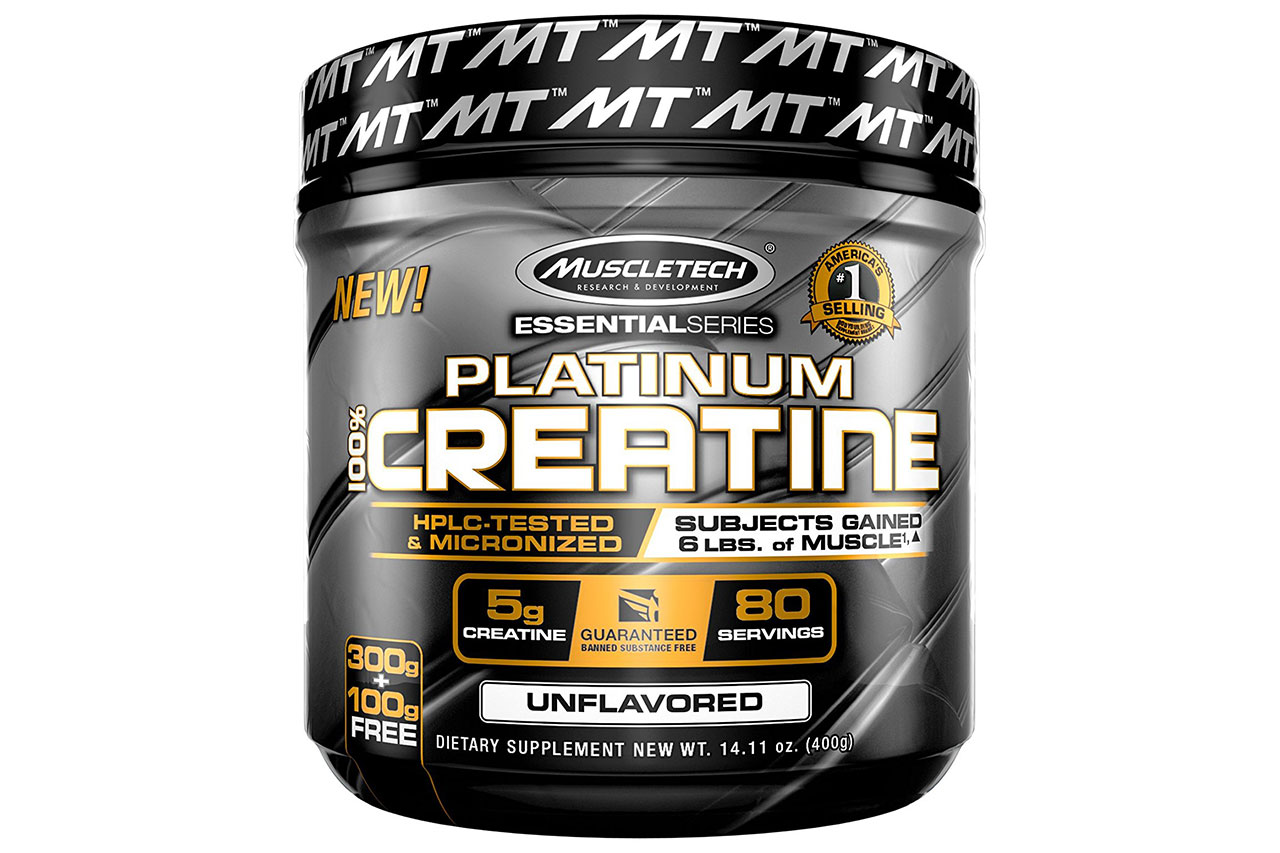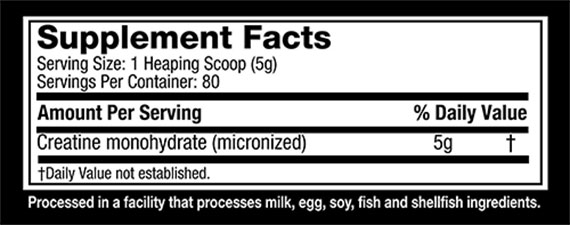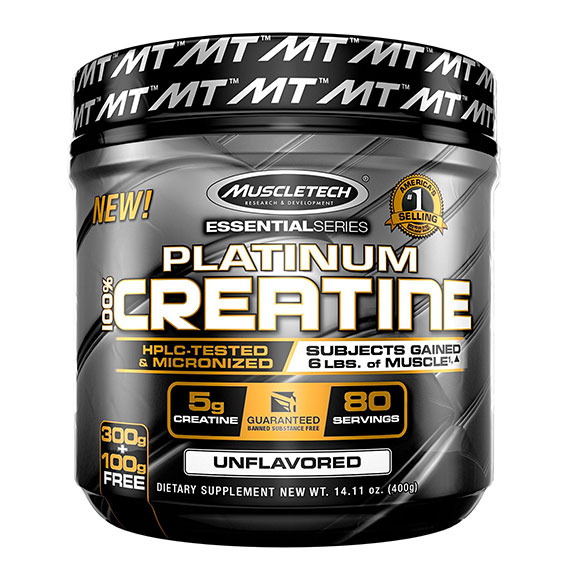Creatine appeared as a food supplement on the market in the early nineties.
For nearly 20 years creatine has been one of the best-selling and yet preferred supplements by fitness enthusiasts and professional bodybuilders.
However, in addition to that, during the period creatine has been on the market, there were many myths and legends revolving around it.
This is probably the most mainstream supplement and the one that is most talked about in terms of effects, side effects of long term use, etc.
Myths About Creatine
Most advanced trainees that use supplements will often hear things like “But bro, all supplements are steroids.”.
99% of those statements however are made by people who have no basic or just limited scientific knowledge.
Most of the times, these people are adults (our parents for example). Probably many of you have stumbled upon your mom’s look of disgrace when she sees those protein tubs and multivitamin pills.
Myths around not only creatine but supplements in general, are mostly created by people who have little to none experience and knowledge with and about physical training and science.
However, these myths do not only concern creatine’s negative effects, but also a ton of other questions about its effect on muscle growth, water retention, strength gaining, improvement of endurance, explosive power and other physical qualities.
So far, there are nothing new about creatine, as being one of the most used supplements, it was well researched.
We only have questions that have been asked and will be asked for generations ahead.
So, is creatine safe for regular use and will there be an actual, significant difference in your physique and performance, or is it just a risky substance that we should try and avoid?
Considering the frequently asked questions, we will analyze these following effects of creatine monohydrate.
Note-Creatine monohydrate is the most used and best researched product out there and is proven to be the most effective type of creatine.
- Creatine saturation in the body
- Strength, endurance, explosiveness improvements
- Hypertrophy (muscle growth)
- Water retention
- Kidney danger
- Receptor overstimulation
During periods of supplementation with creatine, the most important factor towards its effectiveness is its saturation in the body.
This is exactly why creatine is considered to be a supplement that has to be cycled or taken in a long period of time regularly.
It is also worth to note that creatine won’t change its effects on your body whether it is taken before, after a workout or in the morning/afternoon/night.
The most popular and recommended by manufacturers way of supplementing with creatine is by first going through a loading phase- 20 grams a day for 5 to 6 days, followed by a maintenance phase of 2 to 5 grams of creatine daily.
However, no matter how we take creatine, it will get saturated in the body.
This means that a long-term intake of 3-5 grams/day without a loading phase will have the same effect as a cycle starting with a loading phase. The only difference here would be the time elapsed for maximum effect to occur.
Many other researches include various amounts of creatine monohydrate (1-20 grams daily) and each of them concluded the same level of saturation in the body, with the only difference being in time.
When creatine is taken for a long period of time, its levels in the organism are maintained high throughout the whole period of intake.
There are no researches claiming there are side effects of creatine, when cut after a long period of intake.
Creatine And Strength, Endurance And Explosiveness
This supplement is famous with its effect upon absolute strength, endurance and explosiveness. The most common idea is that creatine saturates in the body after a short loading phase, followed by a maintaining dose as we mentioned above- That is how you can reach the peak of its effect while supplementing.
Other people however, report significant positive effects after the second week of use.
Now there might be individual factors, varying from person to person, but science proves one thing for sure- Creatine has a positive effect upon strength, endurance and explosiveness development, in the short or long term, depending on type of use (loading/non-loading phase) and certain individual factors.
Water Retention And Muscle Growth
Water retention, if any, is not bad for you, or a sign of low quality substance.
Some people get this part wrong, as they are not aware our body stores water in more than one place.
In this case, the water retention is not subcutaneous, but instead the water is held in the muscles. There are many claims against creatine’s effectiveness upon muscular development.
However, creatine is proven to increase active body weight, as well as type 1 and 2 muscle fibers.
Other properties of creatine are the increase of informational RNK and myogenic regulating factors like IFG-1, which play key roles in the processes of hypertrophy.
Satellite cells are also influenced by creatine- These cells have a role in the process of micro-tearing and recovery of the muscle fibers.
In conclusion, we can say that creatine has an effect upon muscular development, which is nothing but an outcome of the strength development and endurance – Needless to say, being able to lift heavier for longer periods of time will inevitably increase the size of the working muscle groups.
These effects however, will not wear off after the loading phase, or even the whole cycle, as most users report little to none loss of strength and muscle mass after cutting the intake.
Creatine’s Effect Upon The Kidneys
This supplement is often considered to cause kidney damage.
There are some cases of such side effects, but they were mostly caused by individual factors like intolerances and already existing kidney problems.
Others explain the eventual side effects of this supplement with the fact it leaves creatine byproduct in the organism.
On the flipside however, evidence of negative effects of creatine upon the kidneys in young, healthy people, does not exist.
Furthermore, the researches with young people show no actual sign of kidney function worsening, even for longer periods of intake, ranging from 10 weeks to 21 months.
An important note here is the fact that again, these researches are done on young athletes, who are physically active and have a certain quality of their nutrition, which is a premise to a healthy wellbeing.
Because of all that, we recommend you to avoid creatine if you have any kidney problems/genetic predispositions.
If, however you do not have such issues and decide to supplement with creatine, the best choice would be powdered creatine monohydrate.
Again, here we can apply the rule that the more expensive, branded product is always the better choice, because of its quality.
Other Side Effects Of Creatine
Creatine is extremely bioactive and goes through the digestive system easily. Most users do not report any stomach problems, like discomfort and diarrhea, caused by creatine use.
However, there are organisms that have low tolerance for creatine, which is expressed in the side effects above.
Positive Effects Of Long Term Creatine Use
According to the specific character of this supplement, it is important to note that one of its positives is the fact that it is a big leverage for people who had a phase of muscular dystrophy, which may be caused by many different things like lack of training, illness, bad nutrition, etc.
Creatine significantly decreases the recovery period as it stimulates the muscles’ recovery.
This supplement also stimulates the brain and cognitive functions, as creatine plays a key role in the brain-energetic capacity.
A moderate amount of creatine is held in the brain. Oral intake increases those levels, however, in comparison to the increased levels of creatine in the musculature, the brain levels’ increase is insignificant.
Further effects of creatine on the cognitive functions are noted under certain conditions like high levels of stress, vegetarian diet, memory issues, etc.
It is considered that creatine acts positively on the levels of homocysteine and cholesterol, but its effect upon those, in the long term has not yet been scientifically proven.
In conclusion, we can say that long term creatine use is appropriate for you if:
- You do not have creatine intolerances
- You do not have kidney/stomach problems
- Are physically active (best effect will be achieved with strength training)
- Have good nutrition habits (creatine won’t make up for your bad diet)
- Dose with up to 3-5 grams per day
Make sure to track your creatine intake and all the ways it affects your body.
MeanMuscles Recommendation: MuscleTech Platinum 100% Creatine
MuscleTech Platinum 100% Creatine
Ultra-Pure Micronized Creatine Powder, Unflavored, 14.11 Oz (400 Grams)



